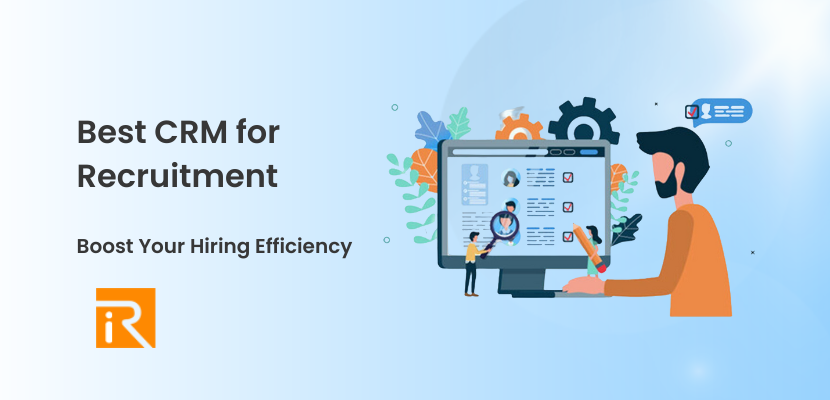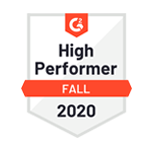Recruitment is a critical aspect of any business. Hiring the right candidates can make or break your organization. As a recruitment agency, you need a powerful tool to manage your candidates, job postings, and communication with clients. That’s where a CRM for recruiters comes in.
A CRM (customer relationship management) system helps recruiters streamline their hiring process and improve their overall efficiency. In this article, we’ll explore the best CRM for recruiters, best CRM for recruitment, and the best CRM for recruitment agencies to help you find the perfect fit for your organization.
The Importance of a CRM for Recruitment
Recruitment can be a time-consuming and challenging process, and recruiters need to manage various tasks and stakeholders to ensure that they find the right candidates for their clients. A CRM or Customer Relationship Management system can help recruiters streamline their recruitment process and improve efficiency in several ways.
-
Automate Recruitment Tasks
Recruiters often have to perform repetitive tasks, such as sending follow-up emails, scheduling interviews, and updating candidate information. With a CRM, recruiters can automate these tasks and free up time to focus on more critical aspects of their job, such as sourcing candidates and building relationships with clients.
-
Streamline Communication with Clients and Candidates
Effective communication is essential in recruitment, and recruiters need to keep clients and candidates informed and engaged throughout the recruitment process. A CRM can help recruiters streamline communication by providing a centralized platform to manage emails, calls, and messages. This ensures that all stakeholders receive timely and relevant updates, improving the overall recruitment experience.
-
Centralize Candidate Data
Recruiters collect a vast amount of data on candidates, including resumes, contact information, and interview notes. A CRM can centralize this data, making it easier for recruiters to search and manage candidate profiles. This can help recruiters find the right candidates quickly and efficiently, reducing time-to-hire and improving the quality of the hire.
-
Improve Candidate Experience
Candidates are a critical stakeholder in recruitment, and their experience can impact their willingness to accept a job offer and recommend the recruiter to others. A CRM can help recruiters provide a better candidate experience by ensuring that candidates receive timely and relevant updates, personalized communication, and a smooth recruitment process.
-
Track Recruitment Metrics
Recruiters need to track various metrics to evaluate the effectiveness of their recruitment process and make data-driven decisions. A CRM can help recruiters track recruitment metrics such as time-to-hire, cost-per-hire, and candidate sources. This data can help recruiters identify areas for improvement and optimize their recruitment process for better results.
What to Look for in a CRM for Recruitment
When choosing a CRM system for recruitment, there are several important factors to consider. These include customization and integration, user interface and ease of use, and pricing and scalability.
2.1. Customization and Integration
Customization and integration refer to the ability of the CRM system to be tailored to the specific needs of your recruitment process. A good CRM should allow you to create custom fields, workflows, and data structures to fit your unique recruiting needs. Additionally, it should be able to integrate seamlessly with other software and tools you use in your recruitment process, such as job boards, social media platforms, and email marketing tools.
2.2. User Interface and Ease of Use
User interface and ease of use are also critical considerations. Your recruiters will be using the CRM system frequently, so it’s important that it is intuitive and easy to navigate. A good CRM should have a clean, user-friendly interface that allows recruiters to quickly access the information they need and perform tasks with ease.
2.3. Pricing and Scalability
Pricing and scalability are important considerations, too. You want to choose a CRM system that fits your budget and can grow with your recruitment needs. Some CRM systems charge per user or per feature, while others offer flat pricing or pricing based on the number of contacts in your database. It’s important to choose a system that not only fits your budget but also has the flexibility to grow and adapt as your recruitment needs change over time.
Best CRM for Recruiters
As a recruiter, you need a powerful tool to manage candidate relationships and stay on top of the hiring process. Customer Relationship Management (CRM) software is the solution that can help recruiters in streamlining their recruitment processes, candidate tracking, and communication with hiring managers.
Here are some of the best CRM software options available for recruiters:
3.1. Zoho Recruit
Zoho Recruit is a cloud-based CRM software designed specifically for recruiters and staffing agencies. It offers a range of features such as resume parsing, candidate management, job posting, and interview scheduling. With its user-friendly interface, Zoho Recruit makes it easy to keep track of your candidates’ progress in the hiring process.
3.2. Bullhorn
Bullhorn is a CRM software that focuses on applicant tracking, customer relationship management, and recruitment. It provides an intuitive interface that helps recruiters manage the entire recruitment process. It also integrates with various job boards, social media platforms, and HR systems.
3.3. JobAdder
JobAdder is a web-based recruitment management software that simplifies the recruitment process by automating the administrative tasks. It offers features like job posting, candidate management, interview scheduling, and analytics. JobAdder also provides customizable reports and dashboards to help recruiters keep track of their hiring metrics.
3.4. Recruitee
Recruitee is an all-in-one recruitment platform that streamlines the recruitment process from sourcing to onboarding. It includes features such as applicant tracking, job posting, talent sourcing, and candidate management. With its user-friendly interface and customizable workflows, Recruitee is a great option for small to medium-sized recruiting teams.
3.5. Salesforce CRM for Recruiting
Salesforce CRM for Recruiting is a cloud-based CRM software that offers a complete recruiting solution for recruiters. It offers features such as applicant tracking, job posting, candidate management, and analytics. It also integrates with various HR systems and social media platforms. With its advanced reporting and analytics, Salesforce CRM for Recruiting is a great option for large recruiting teams.
Best CRM for Recruitment Agencies
Customer Relationship Management (CRM) software is a valuable tool for recruitment agencies. It helps them to manage their relationships with clients and candidates, automate their processes, and streamline their operations. In this article, we’ll look at some of the best CRM software options for recruitment agencies.
4.1. Avionté
Avionté is a cloud-based CRM software designed specifically for staffing and recruitment agencies. It offers a range of features, including applicant tracking, job posting, resume parsing, and reporting. The software is user-friendly and customizable, making it easy to adapt to your agency’s unique needs. Avionté also offers integrations with other software, such as payroll and accounting systems.
4.2. iSmartRecruit
iSmartRecruit is another cloud-based CRM software for recruitment agencies. It offers features such as candidate management, job posting, resume parsing, and reporting. The software also includes social media integration, which allows agencies to reach a wider pool of candidates. iSmartRecruit offers a mobile app, which makes it easy for recruiters to manage their tasks on the go.
4.3. Crelate Talent
Crelate Talent is a cloud-based CRM software that offers features such as candidate management, job posting, resume parsing, and reporting. It also offers email tracking, which allows recruiters to see when their emails have been opened and read. Crelate Talent is highly customizable, allowing agencies to tailor the software to their specific needs. The software also offers integrations with other software, such as Outlook and LinkedIn.
4.4. CATS Applicant Tracking System
CATS Applicant Tracking System is a cloud-based CRM software designed for small to medium-sized recruitment agencies. It offers features such as job posting, resume parsing, and reporting. CATS also includes integrations with other software, such as Zapier and Google Calendar. The software is user-friendly and offers a range of customization options.
4.5. Vincere
Vincere is a cloud-based CRM software designed for recruitment agencies of all sizes. It offers features such as candidate management, job posting, resume parsing, and reporting. Vincere also includes social media integration, which allows agencies to reach a wider pool of candidates. The software is highly customizable and offers integrations with other software, such as LinkedIn and Microsoft Office.
Conclusion
Choosing the best CRM for recruitment agencies can be a daunting task, but it’s essential to ensure that your recruitment process runs smoothly and efficiently. The right CRM can help you streamline your recruitment tasks, improve your communication with clients and candidates, and provide you with valuable recruitment metrics to help you track your success.
When selecting a CRM for recruitment, consider factors like customization and integration, user interface and ease of use, and pricing and scalability. Some of the top CRM for recruitment options include Zoho Recruit, Bullhorn, JobAdder, Recruitee, Salesforce CRM for Recruiting, Avionté, iSmartRecruit, Crelate Talent, CATS Applicant Tracking System, and Vincere.
Therefore, investing in the right CRM for your recruitment agency can make a world of difference in the success of your recruitment process. With the right tool, you can focus on finding the best talent quickly and efficiently, ultimately helping your organization thrive in today’s competitive job market.

















